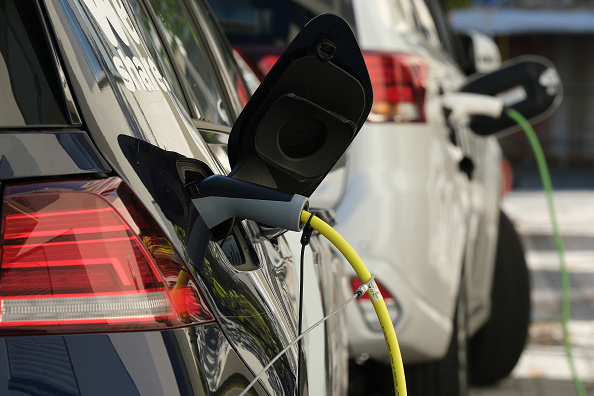Ministers slash electric car grant by £500 despite upcoming petrol ban

The government has today cut the electric car grant from £3,000 to £2,500, prompting cries of disbelief from the auto and energy industries.
From today, customers buying cars which cost less than £35,000 will be eligible for the grant. Those buying cars above this price will receive no subsidies.
Ministers said that this was because those who can buy higher-priced cars can afford to do so without falling back on state help.
Cutting the grant by £500 will make the funding last longer, they added, saying that there were 50 per cent more electric cars under the £35,000 threshold than in 2019.
But with the UK having committed to phasing out all new petrol and diesel sales by 2030, the car industry said the decision was the “wrong move at the wrong time”.
On average, electric cars are 15 – 20 per cent more expensive than their internal combustion engine-powered counterparts.
The chief executive of auto body the Society for Motor Manufacturers and Traders, Mike Hawes, said: “The decision to slash the Plug-in Car Grant and Van & Truck Grant is the wrong move at the wrong time.
“New battery electric technology is more expensive than conventional engines and incentives are essential in making these vehicles affordable to the customer.
“Cutting the grant and eligibility moves the UK even further behind other markets, markets which are increasing their support, making it yet more difficult for the UK to get sufficient supply.
Before the Open: Get the jump on the markets with our early morning newsletter
“This sends the wrong message to the consumer, especially private customers, and to an industry challenged to meet the Government’s ambition to be a world leader in the transition to zero emission mobility.”
Auto Trader’s Erin Baker added that the decision was a “detrimental step”.
“Fewer than 25 new models available today are under £35,000 and that’s for basic specifications without additional add-ons. The result is a grant that is only addressing a small number of cars in a market where consumers already have less choice.
“Specifically, the grant will only really apply to smaller cars, leaving families and those needing a larger car without financial support from the government.”
The decision to cut the grant comes just as electric car sales were beginning to gain real traction.
In 2020 plug-in sales accounted for one in 10 of all cars sold in the UK last year.
Transport minister Rachel Maclean said: “We want as many people as possible to be able to make the switch to electric vehicles as we look to reduce our carbon emissions, strive towards our net-zero ambitions and level up right across the UK.
“The increasing choice of new vehicles, growing demand from customers and rapidly rising number of chargepoints mean that, while the level of funding remains as high as ever, given soaring demand, we are refocusing our vehicle grants on the more affordable zero emission vehicles – where most consumers will be looking and where taxpayers’ money will make more of a difference.”
Since it was introduced 10 years ago, the government has spent £1.3bn subsidising the sale of electric vehicles.
The scheme was renewed last year, with a new £582m of funding intended to last until 2022 to 2023.